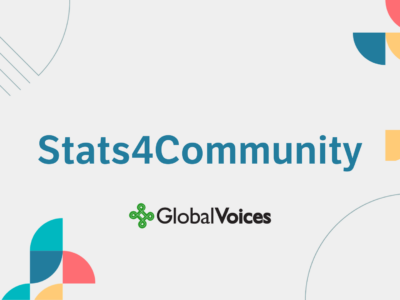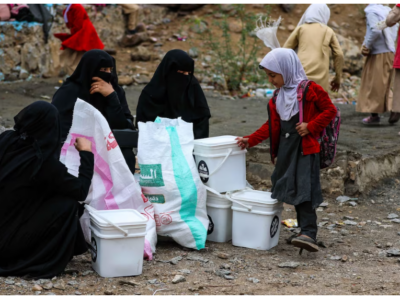Before I begin this post, I want to share a response from a professor at a university, who I contacted as part of our working group on collaborating with universities to try and create a Global Voices internship in a given region. The response required only two emails and was only one of several positive responses our group received when sending out emails to selected universities. I have deleted details of the professor and university as I have not asked his permission to reprint.
.… Dear Mr Rickleton,
Thank you for contacting me. I apologize for being slow to respond, but am currently on sabbatical and have not been checking emails regularly.
There is likely to be some interest in participating with Global Voices among several of our students. At present, it seems that there are two possible ways that they could work with your organization.
Informally, we could announce that interested students in the department could contact someone at Global Voices. We regularly announce such opportunities through our department's Facebook page and through campus email.
Another possibility would be for students to work as volunteers on a semester basis. We have had some early success with these e-internships. While it is too late to set up an internship for this semester, we could develop an internship for the summer or fall (more likely) of this year. While we can discuss this more, an e-internship requires a designated supervisor at the internship granting institution ( in this case Global Voices) and an academic advisor here at ______. These are fairly informal arrangements but do require some contact and supervision from the institution. All evaluation for course credit is handled by _____faculty.
As developing an internship would take a few email exchanges, a good way to judge immediate interest would be to send out an announcement. If this is suitable, then please just let me know what Global Voices would be interested in and who should any interested students contact. If you have a standard announcement for these situations, you could forward that to me as well. Of course, if you have other suggestions, we can discuss these.
Thank you again for your interest in _______. Our multinational student body is about 50% _______. Other students come from ______. All the best.
Respectfully…..
At the Global Voices summit in Cebu, one frequently raised question was how better to cooperate with universities.
As a presentation made by Ivan and Georgia during the summit demonstrated, a big part of the Global Voices body has been through universities, and many are still affiliated or have contact with them.
Moreover, we are already cooperating with universities. GV Deutsche has a successful partnership with a German institute that has proved fruitful and a sustainable source of translations. Many of the authors for GV Central Asia come from the student body of an American university in Bishkek, Kyrgyzstan. There are possibly other examples of collaboration happening in our network that we do not know about. Please share these stories so that we can use them as a base of knowledge
A GV University is…
In the GV Cooperating with Universities working group we listed a number of universities or teaching institutions based in Bulgaria, Ukraine, Madagascar, Greece, Argentina and the Caribbean that might be appropriate for partnerships with Global Voices.
We agreed that universities with multilingual and possibly regional student bodies were ideal targets for collaboration.
Janine produced an excellent resource in the shape of a partnership proposal that could theoretically be customized and sent to any university in the world. We can share with anyone who would like to use it.
We also agreed that universities could be approached at different levels, and that there was no need to get disheartened if a university did not reply straight away. Universities have departments, student representatives, Facebook pages and so on.
Other ideas
Speaking with other summiteers, it became clear that opportunities for collaboration with universities and other academic institutions are endless.
Angel had an interesting idea to work with young historians in the Caribbean through a Puerto Rico-based association and use new media as a way of amplifying discussions about the region’s history.
Richard suggested the Catholic University of Eastern Africa could be a great source of recruits for Global Voices, since the university has a regional student body meaning that a printed internship announcement or a short presentation on Global Voices there could result in new authors from Ethiopia, Eritrea, Somalia and other countries as well as Kenya.
In the working session, we also talked about the possibility of creating a GV journal, quarterly or semi-quarterly, with academic/policy content to satisfy the demand of authors and readers for the research and depth that our regular articles sometimes lack the space to go into.
Ideas need resources. Resources need to know the ideas will work
When discussing barriers to implementing collaboration with universities, many people mentioned the fact that coordinating collaboration would take time — several exchanges of emails — and that working with new authors could require training and face to face interaction.
While there is a lot of enthusiasm in the GV community to expand our reach, it could be unrealistic to expect to expect multiple projects to progress effectively without some degree of funding. It might also be unrealistic to expect funding from within GV or from other donors without reasonable evidence that projects will progress!
For this reason, we should use this post-summit phase as an opportunity to test the water, to see what partnerships with which universities might be useful for Global Voices (perhaps a specific region is under covered etc.) and gauge interest among the student bodies of those universities for contributing to our cause.
As the response I pasted at the top of this post shows, this water-testing process may require little more than an email or two to begin with (academics can need prodding) and could be the beginning of expanding our pool of translators and authors and thus our coverage of the world.
Sounds worthwhile!



